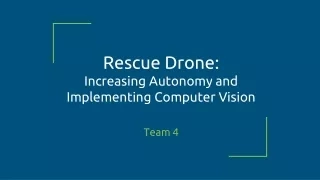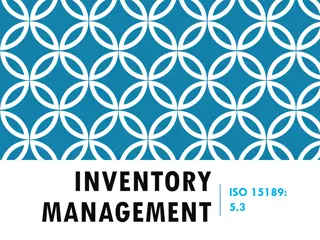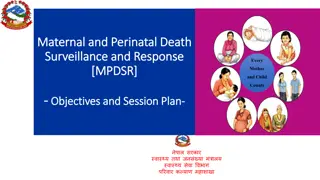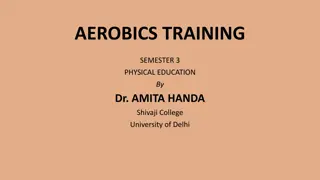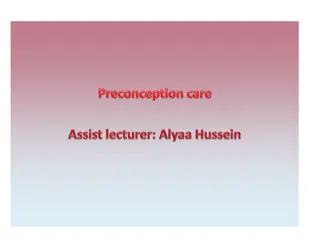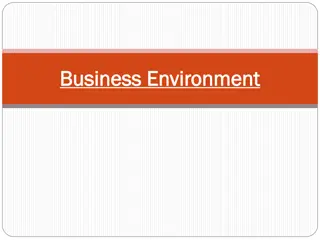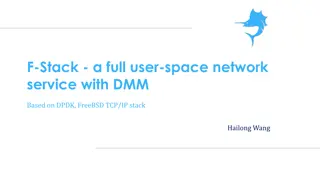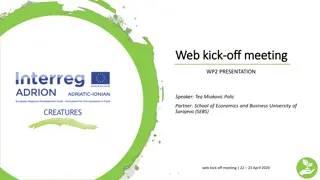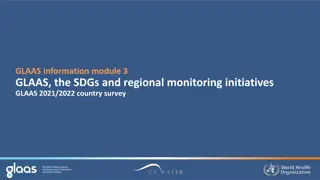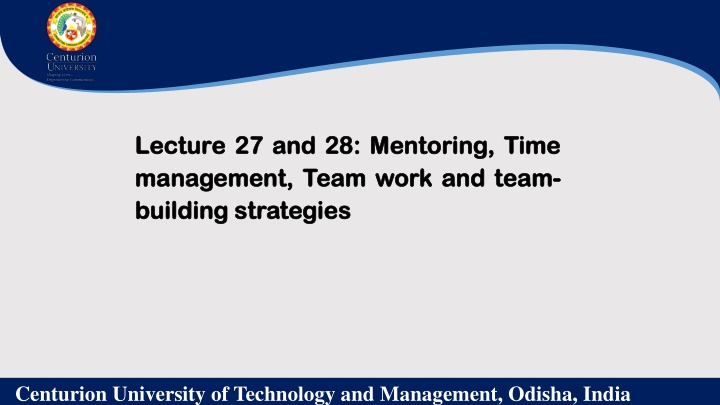
Effective Mentoring Strategies for Personal and Professional Development
Explore the importance of mentoring in career growth, the difference between mentoring, coaching, and counseling, and various mentoring techniques like one-on-one, group, peer, and distance mentoring. Mentoring can enhance skills, confidence, and decision-making, benefitting both mentors and mentees.
Download Presentation

Please find below an Image/Link to download the presentation.
The content on the website is provided AS IS for your information and personal use only. It may not be sold, licensed, or shared on other websites without obtaining consent from the author. If you encounter any issues during the download, it is possible that the publisher has removed the file from their server.
You are allowed to download the files provided on this website for personal or commercial use, subject to the condition that they are used lawfully. All files are the property of their respective owners.
The content on the website is provided AS IS for your information and personal use only. It may not be sold, licensed, or shared on other websites without obtaining consent from the author.
E N D
Presentation Transcript
Lecture Lecture 27 management, management, Team building building strategies strategies 27 and and 28 28: : Mentoring, Mentoring, Time Team work work and Time team- - and team Centurion University of Technology and Management, Odisha, India
Mentoring is a reciprocal and collaborative at-will relationship that most often occurs between a senior and junior employee for the purpose of the mentee s growth, learning, and career development. Often the mentor and mentee are internal to an organization, and there is an emphasis on organizational goals, culture, career goals, advice on professional development, and work-life balance. Effective mentors often act as role models and sounding boards for their mentee and provide guidance to help them reach their goals. Mentoring can be formal or informal. In an informal environment, mentees set goals, but they are usually not measurable and the relationships are unstructured. For a formal mentoring relationship, there are actionable and measurable goals defined and set with determined requirements. Centurion University of Technology and Management, Odisha, India
Mentoring is not coaching and not counseling. Mentoring relationships are based upon advice giving and direction while coaching is not. Counseling is a paid-relationship in which underlying mental or psychological issues are addressed with solutions given by a medical professional. Why Is Mentoring Important? A good mentor can help the mentee become more effective at work, learn new skills, develop greater confidence, and make better decisions for their overall career growth. Mentors report many benefits as well, including satisfaction from seeing others develop; expanded generational and cultural perspectives; strengthening of technical, leadership, and interpersonal skills; and continuing to experience new ideas and insights mentoring diagram: one-on-one mentoring, group mentoring, peer mentoring, distance or e-mentoring, reverse mentoring, speed mentoring Centurion University of Technology and Management, Odisha, India
Mentoring Techniques or Models One-on-One Mentoring: This type of mentoring is the most traditional of all the types of mentoring. Only the mentor and mentee are involved in this type of mentoring, and it is usually a more-experienced individual paired with a less- experienced or much younger mentee. Group Mentoring: In this model, one or several mentors work with a group of mentees. Schools and youth programs often apply this model because there may not be enough time or resources to have one mentor for each participant. Peer Mentoring: Participants in this model are from the same role or department or have shared or similar experiences, whether in their professional or personal lives. These peers pair up to offer support for each other. This can be a group or a one-on-one mentoring relationship. Centurion University of Technology and Management, Odisha, India
Distance or E-Mentoring: With such advanced technology, the mentorship relationship no longer has to be face-to-face. Using online software or even email, participants in this type of mentoring can connect virtually without losing the personal touch. Reverse Mentoring: This mentoring relationship is flipped from the traditional model. Instead of a senior professional mentoring a more junior employee, the junior employee mentors a more senior professional. This relationship is usually for the younger or more junior professional to teach the skills or a new application or technology to the more senior one. Speed Mentoring: This type of mentoring is a play on speed dating and usually occurs as part of a corporate event or conference. The mentee has a series of one-on-one conversations with a set of different mentors and usually moves from one mentor to the next after a brief meeting. The mentee should come prepared with questions for advice from the senior level professionals. Centurion University of Technology and Management, Odisha, India
Time Management: Time Management is the process of planning and exercising conscious control of time spent on specific activities, especially to increase effectiveness, efficiency, and productivity. It involves a juggling act of various demands upon a person relating to work, social life, family, hobbies, personal interests and commitments with the finiteness of time. Using time effectively gives the person "choice" on spending/managing activities at their own time and expediency. Time management may be aided by a range of skills, tools, and techniques used to manage time when accomplishing specific tasks, projects, and goals complying with a due date. Initially, time management referred to just business or work activities, but eventually the term broadened to include personal activities as well. Centurion University of Technology and Management, Odisha, India
A time management system is a designed combination of processes, tools, techniques, and methods. Time management is usually a necessity in any project development as it determines the project completion time and scope. It is also important to understand that both technical and structural differences in time management exist due to variations in cultural concepts of time. The major themes arising from the literature on time management include the following: Creating an environment conducive to effectiveness Setting of priorities The related process of reduction of time spent on non-priorities Implementation of goals Centurion University of Technology and Management, Odisha, India
Benefits of Time Management The ability to manage your time effectively is important. Good time management leads to improved efficiency and productivity, less stress, and more success in life. Here are some benefits of managing time effectively: 1. Stress relief Making and following a task schedule reduces anxiety. As you check off items on your to do list, you can see that you are making tangible progress. This helps you avoid feeling stressed out with worry about whether you re getting things done. 2. More time Good time management gives you extra time to spend in your daily life. People who can time manage effectively enjoy having more time to spend on hobbies or other personal pursuits. Centurion University of Technology and Management, Odisha, India
More opportunities 3. Managing time well leads to more opportunities and less time wasted on trivial activities. Good time management skills are key qualities that employers look for. The ability to prioritize and schedule work is extremely desirable for any organization. Ability to realize goals 4. Individuals who practice good time management are able to better achieve goals and objectives, and to do so in a shorter length of time. Centurion University of Technology and Management, Odisha, India
For Effective Time Management After considering the benefits of time management, lets look at some ways to manage time effectively: 1. Set goals correctly Set goals that are achievable and measurable. Use the SMART method when setting goals. In essence, make sure the goals you set are Specific, Measurable, Attainable, Relevant, and Timely. Prioritize wisely 2. Prioritize tasks based on importance and urgency. For example, look at your daily tasks and determine which Are Important and urgent?: Do these tasks right away. which Are Important but not urgent?: Decide when to do these tasks. Urgent but not important: Delegate ? these tasks if possible. Not urgent and not important: Set these aside to do later. Centurion University of Technology and Management, Odisha, India
Set a time limit to complete a task 3. Setting time constraints for completing tasks helps you be more focused and efficient. Making the small extra effort to decide on how much time you need to allot for each task can also help you recognize potential problems before they arise. That way you can make plans for dealing with them. Take a break between tasks 4. When doing a lot of tasks without a break, it is harder to stay focused and motivated. Allow some downtime between tasks to clear your head and refresh yourself. Consider grabbing a brief nap, going for a short walk, or meditating. Centurion University of Technology and Management, Odisha, India
5. Organize yourself Utilize your calendar for more long-term time management. Write down the deadlines for projects, or for tasks that are part of completing the overall project. Think about which days might be best to dedicate to specific tasks. For example, you might need to plan a meeting to discuss cash flow on a day when you know the company CFO is available. 6. Remove non-essential tasks/activities It is important to remove excess activities or tasks. Determine what is significant and what deserves your time. Removing non-essential tasks/activities frees up more of your time to be spent on genuinely important things. Centurion University of Technology and Management, Odisha, India
7. Plan ahead Make sure you start every day with a clear idea of what you need to do what needs to get done THAT DAY. Consider making it a habit to, at the end of each workday, going ahead and writing out your todo list for the next workday. That way you can hit the ground running the next morning. Implications of Poor Time Management: Let s also consider the consequences of poor time management. 1. Poor workflow The inability to plan ahead and stick to goals means poor efficiency. For example, if there are several important tasks to complete, an effective plan would be to complete related tasks together or sequentially. Centurion University of Technology and Management, Odisha, India
2. Wasted time Poor time management results in wasted time. For example, by talking to friends on social media while doing an assignment, you are distracting yourself and wasting time 3. Loss of control By not knowing what the next task is, you suffer from loss of control of your life. That can contribute to higher stress levels and anxiety. 4. Poor quality of work Poor time management typically makes the quality of your work suffer. For example, having to rush to complete tasks at the last minute usually compromises quality. Centurion University of Technology and Management, Odisha, India
5. Poor reputation If clients or your employer cannot rely on you to complete tasks in a timely manner, their expectations and perceptions of you are adversely affected. Highly Effective Time Management Skills Time management is a skill that takes time to develop and is different for each person. You just need to find what works best for you. Centurion University of Technology and Management, Odisha, India
Here are 10 ways that you can use to improve time management skills and increase productivity: Delegate Tasks 1. It is common for all of us to take more tasks than our desired potential. This can often result in stress and burnout. Delegation is not running away from your responsibilities but is an important function of management. Learn the art of delegating work to your subordinates as per their skills and abilities and get more achieved. 2. Prioritize Work Before the start of the day, make a list of tasks that need your immediate attention. Unimportant tasks can consume much of your precious time. Some urgent tasks need to be completed on that day only while other unimportant tasks could be carried forward to next day. In short, prioritize your important tasks to focus on those that are more important. Centurion University of Technology and Management, Odisha, India
3. Schedule Tasks Carry a planner or notebook with you and list all the tasks that come to your mind. Make a simple ToDo list before the start of the day, prioritize the tasks and focus on the essentials. Make sure that these tasks are attainable too. To better manage your time management skills, you may think of making 3 lists: work, home and personal. 4. Set up Deadlines When you have a task at hand, set a realistic deadline and stick to it. Try to set a deadline few days before the task so that you can complete all those tasks that may get in the way. Challenge yourself and meet the deadline; reward yourself for meeting a difficult challenge. Centurion University of Technology and Management, Odisha, India
7. Overcome Procrastination Procrastination is one of the things that badly affect productivity. It can result in wasting essential time and energy. It could be a major problem in both your career and your personal life. Avoid procrastination at all cost. Learn from this step-by-step guide and stop procrastinating 8. Deal with Stress Wisely Stress often occurs when we accept more work than our ability. The result is that our body starts feeling tired which can affect our productivity Centurion University of Technology and Management, Odisha, India
9. Avoid Multitasking Most of us feel that multitasking is an efficient way of getting things done but, the truth is that we do better when we focus and concentrate on one thing. Multitasking hampers productivity and should be avoided to improve time management techniques. Make use of to-do lists and deadlines to help you stay focus! This way you can do better at what you re doing. 10. Start Early Most of the successful men and women have one thing in common they start their day early as it gives them time to sit, think and plan their day. Here s the reason: This is Why Productive People Always Wake Up So Early. When you get up early, you are more calm, creative and clear-headed. As the day progresses, your energy levels starts going down which affects your productivity and you may not perform as well. Centurion University of Technology and Management, Odisha, India
Three P's of time management: Planning, Prioritizing and Performing. Types of Time Management Techniques 1. Pareto Analysis (a.k.a., the 80/20 rule) 2. Pomodoro Technique 3. Eisenhower Matrix 4. Parkinson s Law 5. Time Blocking Method 6. Getting Things Done (GTD) Method 7. Rapid Planning Method (RPM) 8. Pickle Jar Theory 9. Eat That Frog Technique Centurion University of Technology and Management, Odisha, India
Team work and team-building strategies Team work: The process of working collaboratively with a group of people in order to achieve a goal. Teamwork is often a crucial part of a business, as it is often necessary for colleagues to work well together, trying their best in any circumstance. Tips for a better team work Think about your team first - Every individual should think of his team first and his personal interests should take a backseat. Do not mix your personal issues with your professional life. Keep them separate. Never underestimate your team member - Do not neglect any of the members, instead work together and also listen to them as well. Never try to impose your ideas on any member. Avoid demotivating any team member. Centurion University of Technology and Management, Odisha, India
Discuss - Before implementing any new idea, it must be discussed with each and every member on an open platform. Never ever discuss with anyone separately as the other person feels left out and reluctant to perform and contribute to the team. Avoid criticism - Stay away from criticism and making fun of your team members. Help each other and be a good team player. Be the first one to break the ice and always create a friendly ambience. If you do not agree with any of your team member, make him understand his mistakes but in a polite tone and do guide him. Avoid negativity within the team. Transparency must be maintained and healthy interaction must be promoted among the team members. The communication must be effective, crystal clear and precise so that every team member gets a common picture. Effective communication also nullifies misunderstandings and confusions. Confusions lead to conflicts and individuals waste their time and energy in fighting rather than working. Centurion University of Technology and Management, Odisha, India
The team leader must take the responsibility of encouraging the team members to give their level best and should intervene immediately in cases of conflicts. The personality of the leader should be such that every team member should look up to him and take his advice whenever required. He should not be partial to any member and support each of them equally. It is the duty of the team leader to extract the best out of his team members. For better team work, try to understand your team members well. Do not just always talk business, it is okay if you go out with your team members for lunch or catch a movie together. It improves the relations and strengthens the bond among the team members. The team members must trust each other for maximum output. Centurion University of Technology and Management, Odisha, India
Avoid conflicts in your team. Dont fight over petty issues and find faults in others. One should be a little adjusting with each other and try to find an alternative best suited to all the team members. Rewards and Recognition - Healthy competition must be encouraged among the team members. The performance of every team member must be evaluated timely and the best performer should be rewarded suitably so that the other members also get motivated to perform. Recognitions like The Best Team Player or the The Best Performer go a long way in motivating the team members. Appreciate the member who performs the best or does something unique. Centurion University of Technology and Management, Odisha, India
Team building Team building is an ongoing process that helps a work group evolve into a cohesive unit. The team members not only share expectations for accomplishing group tasks, but trust and support one another and respect one another's individual differences. Your role as a team builder is to lead your team toward cohesiveness and productivity. A team takes on a life of its own and you have to regularly nurture and maintain it, just as you do for individual employees. Your Employee Relations Consultant can advise and help you. Centurion University of Technology and Management, Odisha, India
List of team building strategies 1. Promote a respectful environment 10. Encourage mentorship 2. Master conflict resolution 11. Create a safe space 3. Engage in collective activities or retreats 12. Define team roles 4. Hold employees accountable 5. Open the lines of communication 6. Articulate a clear, achievable vision 7. Trust in your team s efficacy 8. Lean on your team s strengths 9. Reward and acknowledge excellence Centurion University of Technology and Management, Odisha, India

